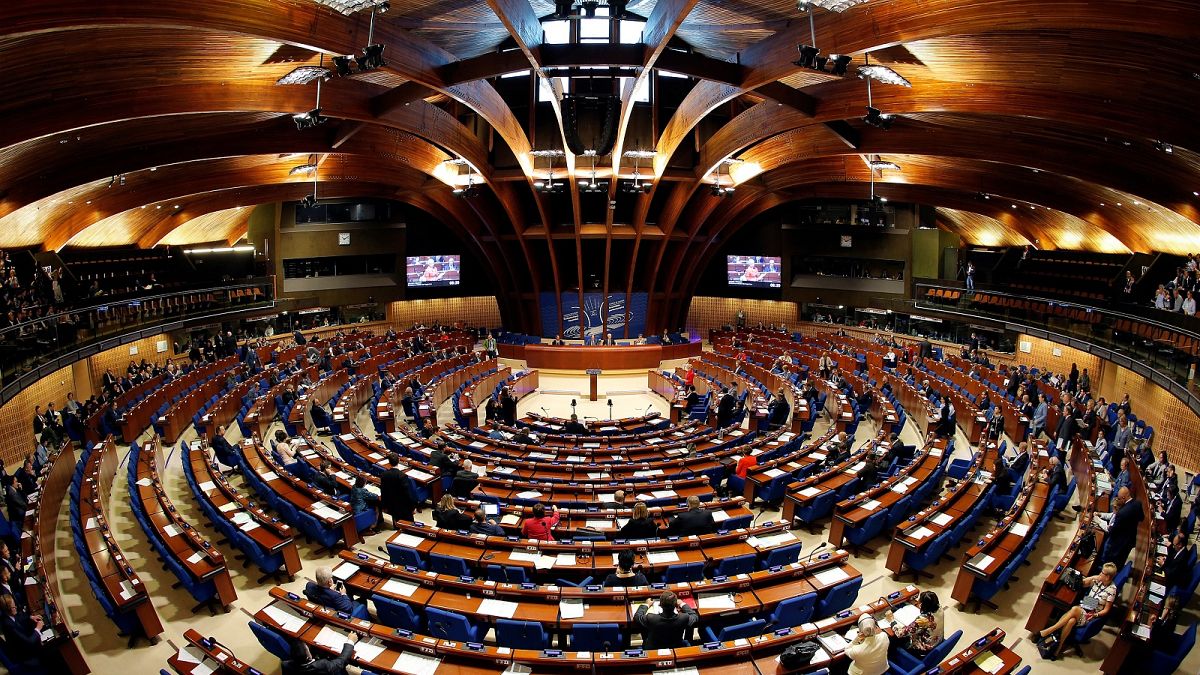The Council of Europe, Europe’s leading human rights body, is celebrating its 70th birthday this week, but it’s not a great time for a party. Crisis overshadows the anniversary gathering in Helsinki on 16-17 May of foreign ministers from the 47 member states.
The Council of Europe, Europe’s leading human rights body, is celebrating its 70th birthday this week, but it’s not a great time for a party. Crisis overshadows the anniversary gathering in Helsinki on 16-17 May of foreign ministers from the 47 member states.
Russia has frozen its funding and is threatening to leave the organization in a long-running dispute with the Parliamentary Assembly of the Council of Europe (PACE) triggered by Russia’s occupation of Crimea in 2014. Turkey has also cut back its funding, unhappy about the assembly’s scrutiny of its record. The assembly is also struggling to recover from a major corruption scandal in which Azerbaijan paid PACE members to water down criticism of the country’s poor human rights record. And the UK’s ruling Conservative Party has openly contemplated leaving the European Court of Human Rights—which would mean leaving the Council of Europe too—once Brexit is done.
But the Council of Europe has a bigger story that deserves to be heard—about how an institution first proposed by Winston Churchill went on to lay the legal bedrock of human rights in the region with the European Convention on Human Rights. Today the Convention offers human rights protection and a remedy against government violations to 830 million people from Lisbon to Vladivostok. Some Council of Europe conventions, such as on stopping domestic violence against women and on data protection, have led to global standard-setting in their fields.
The organization’s aim is to uphold human rights, democracy and the rule of law across wider Europe. The huge range of its member countries, including all European Union members, six post-Soviet states, Balkan countries and Turkey, demands that the organization’s core institutions be the principal drivers of this goal. These include the European Court of Human Rights (ECtHR), the strongest human rights court in the world and arguably the jewel in the Council of Europe’s crown, the Venice Commission (Europe’s top constitutional law expert body) and the commissioner for human rights. These, and others such as the assembly, play vital roles in pinpointing concerns about human rights abuses, advising on legal changes and offering legal redress to victims across this heterogenous region.
Take a few snapshots of the organization’s recent work.
Despite the severe crackdown on human rights in Russia, the government in Moscow recently paid 30,000 EUR in compensation under a ECtHR order to two activists from the Pussy Riot protest group over violations they suffered in detention in 2012. In the last two years Russia has paid out 23.3 million EUR to ordinary Russians following the court’s rulings—to protesters, prisoners, lesbian and gay activists and others. Given the lack of an independent judiciary in Russia, the ECtHR has become a vital court of last resort for many people.
This month another important Council of Europe body, the Committee for the Prevention of Torture issued findings on the way Germany deports failed asylum seekers. It monitored a flight organized by German police last year from Munich to Kabul and criticized how returnees were often told only at the last minute about their impending removal, and how police mishandled one returnee who resisted deportation. Germany accepted many of the recommendations.
And last August, Azerbaijan released Ilgar Mammadov, a political activist from unlawful detention. The Council of Europe’s Committee of Ministers -- the representatives of the member governments—had repeatedly condemned Mammadov’s detention. And in an unprecedented move it had triggered legal proceedings against Baku over his detention. The Council of Europe often struggles to exert its authority, but on this occasion it succeeded.
“Modern European democracies cannot function without truly independent judiciaries.” Those words by Dunja Mijatović, the Council of Europe’s human rights commissioner were a message in March to the Polish government to stop interfering with how its judiciary works. Mijatović’s stand, following a five-day visit, was not popular among top officials in Warsaw, but reflected her and her predecessors’ approach: don’t hold back from justified criticism.
The Council of Europe faces huge challenges. The crisis over Russia has triggered severe financial problems. The ECtHR is a victim of its own success with a backlog of thousands of cases, and states sometimes willing to pay compensation without addressing the substantive abuse. PACE is struggling to assert its legitimacy as a united and powerful voice on democracy and human rights across the continent.
Yet the organization and its expert bodies deserve strong political support from its member governments to ensure the European Convention on Human Rights has real meaning for ordinary people. That should be the message sent from the birthday celebrations in Helsinki this week.
Hugh Williamson is director, Europe & Central Asia division, Human Rights Watch, based in Berlin.Visit his Twitter account.
____________
Are you a recognised expert in your field? At Euronews, we believe all views matter. Contact us at view@euronews.com to send pitches or submissions and be part of the conversation.

